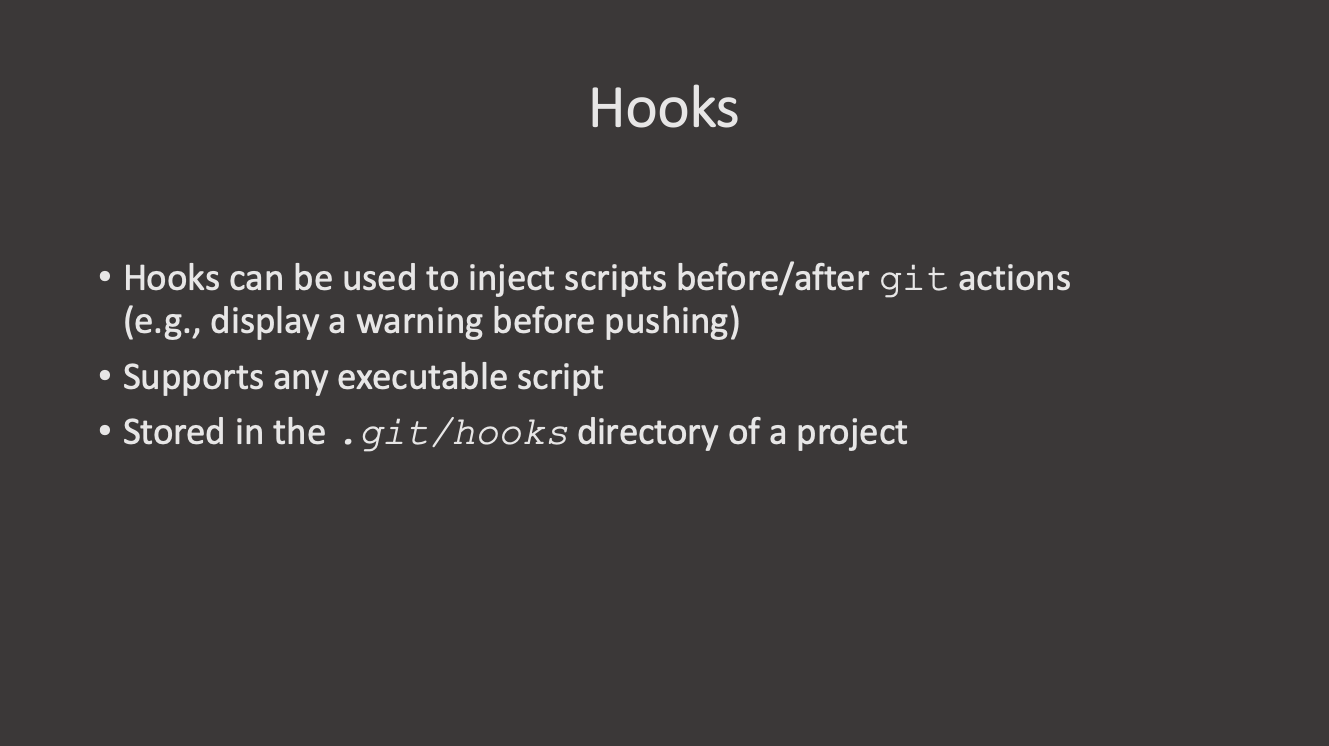Hooks
Last updated on 2025-12-05 | Edit this page
Estimated time: 0 minutes
Overview
Questions
- How do I automate checks on my commit?
- How do I check changes before a commit?
Objectives
- Learn about using hooks to improve quality of commits
Git hooks are scripts that get run when a specific event occurs in git. The scripts can be written in any language and do anything you like, so any executauble script can be a hook.
Git hooks can trigger events on the server size or locally, and
commonly used hooks include: - pre-commit: Executed before
the git commit command and is usually used to check the
changes with linters or tests. - prepare-commit-msg:
Executed before after the commit message is - commit-msg:
Validates the commit message, can be used to check whether the commit
message adheres to project policies - post-commit: Runs
after the commit, often used for notifications or logging. -
pre-receive: Server-side hook, which runs before a push is
accepted, commonly used to enfore project policies
Examples of local events that can trigger hooks include
commit (pre- or post-commit hooks), checkout
or rebase. Pre-commit hooks are perhaps the most common and
useful ones: they trigger actions before the code is committed and if
the hook script fails, then the command is aborted. This can be very
powerful - you can automatically run linters, before the code is even
committed.
List of pre-written pre-commit hooks: https://github.com/pre-commit/pre-commit-hooks
The executable files are stored in the .git/hooks/
directory in your project directory. A pre-commit hooks will be an
executable file in this directory stored with the magic name
pre-commit. Check the directory, there are already several
examples. Let’s create a new one
And add the following text to it:
#!/usr/bin/env bash
set -eo pipefail
flake8 hello.py
echo "flake8 passed!"Now let’s make hello.py:
And add some text to it:
The typo is on purpose. Add and commit it to the repository.
GitHub actions are the equivalent of server-side hooks on GitHub.
There are lots of things that can be done with GitHub actions: https://docs.github.com/en/actions
Here is an example of a simple cron job: https://github.com/mpi-astronomy/XarXiv

Materials: https://verdantfox.com/blog/how-to-use-git-pre-commit-hooks-the-hard-way-and-the-easy-way
- Git provides a list of different hooks for you to run tasks at specific times in the commit
- Use the
pre-commithook to check for change conformity before changes are committed
{% include links.md %}
